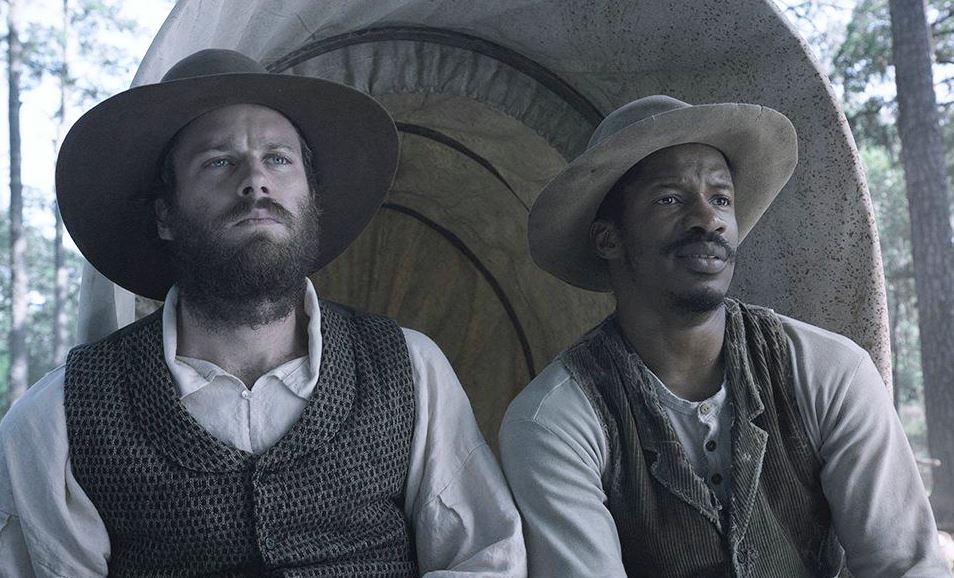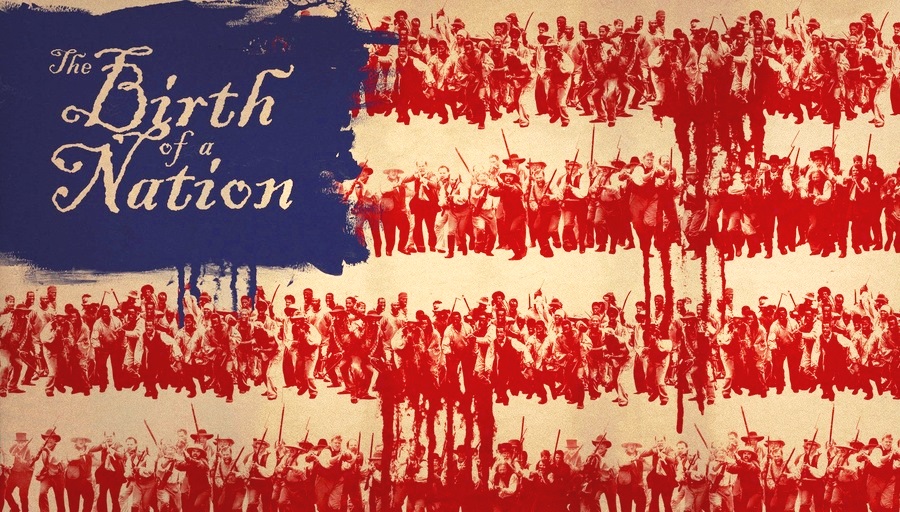
Effective, sometimes thought-provoking and sometimes questionably shallow biopic of the black slave revolter Nat Turner in 1831 Virginia. That makes it a mixed item. Nate Parker has written and directed The Birth of a Nation in a straight-forward hail this martyr hero sort of way, and stars as Nat Turner. His film is a considerably important American chapter because Nat led the most famous slave revolt in the antebellum South, having slaughtered sixty white families.
Taking one single life isn’t small potatoes, let’s not kid ourselves. There’s a certain madness that must go with that, and I don’t think the film gets inside the madness, the fury, of Nat Turner who killed a whole lot more. He’s more like a righteous avenger who believed his African-American brothers deserved payback. In context in the history of American slavery, well, that kind of payback is understood yet the film could have dug deeper with offering a plethora of heated emotions and plugged us further into its collected thought processes of all rebel slaves.
Where Parker’s film does a particularly good job, where I think it’s important, is the set-up before the riot, the suggestion that Parker was a slave under an exceptionally “good” master, that of Sam Turner (Armie Hammer, excellent as a contradictory character), and that not even under superior shelter and adequate work conditions, can a slave feel safe or removed from fear. Too many outside influences such as roaming white slave-catchers and dissolute houseguests can cause alarm. Then there’s Sam Turner himself, whose family name could not be tarnished, which meant he would forsake good treatment of his slaves while in the company of others if it meant saving face. Which meant that there really wasn’t such a thing as a good master. Nat Turner was sent by his master to attend other slave plantations to spread the good word of the Bible, yet it is soulfully crushing to see the words of the Bible be wielded simply to further subjugate blacks. Ultimately, his master did him no good favors because the one time Nat acts out as a preacher in the “wrong” way, there came swift repercussions.
Violence comes in many graphic forms in “The Birth of a Nation.” The hate is piled on, the rape of black mens’ wives a catalyst for the revolt. And so the existence of Nat Turner was simply inevitable, here was a man provoked, per se. The film doesn’t dare to say what Nat’s bigger scheme in the revolt happened to be. One assumes that he knew he was going to be caught? That there was nowhere to hide? That it was a futile revolt? The movie could have actually used more exposition. We’re kind of grasping for straws here, but the martyrdom of Nat Turner led to inspiring young black men signing up for the Northern regiment, as properly portrayed in the 1989 movie “Glory,” according to this movie.
“The Birth of a Nation” doesn’t have the searing power of “Glory” or “12 Years a Slave,” nor does it have the demented audacity of “Django Unchained” (nothing has made me reconsider American slavery and inspired revisionist history in the way Samuel L. Jackson’s character in that film provoked me to). But “The Birth of a Nation” does play a few strong notes, and it’s a necessary jab at the all-out racism of D.W. Griffith’s “Birth of a Nation” from a hundred years ago.
Note: For this review, I have taken out all consideration of Nate Parker’s real-life notoriety, which is too sad, and distracts us from the accomplishment of putting out this story of Nat Turner that has its own merit.
120 Minutes. Rated R.
HISTORICAL DRAMA /BIOPIC /WEEKEND FOOD FOR THOUGHT
Film Cousins: “Glory” (1989); “Rosewood” (1997); “Django Unchained” (2012); “12 Years a Slave” (2013).





